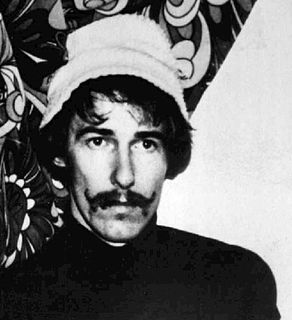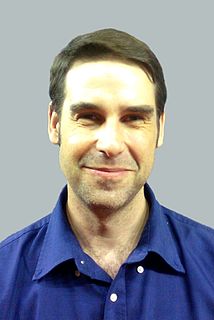A Quote by George Washington Carver
Believe. The promise of God are real. They are as real, as solid, yes infinitely more solid than this table which the materialist so thoroughly believes in. If you would only believe, O ye of little faith.
Related Quotes
Solid scriptural theology should be valued in the church. Books in which Scripture is reverently regarded as the only rule of faith and practice-- books in which Christ and the Holy Ghost have their rightful office-- books in which justification, and sanctification, and regeneration, and faith, and grace, and holiness are clearly, distinctly, and accurately delineated and exhibited, these are the only books which do real good. Few things need reviving more than a taste for such books as these among readers.
My faith, my hermeneutics does not demand that I correlate every verse. In other words, there are often verses that appear, I'm a John 3:16 Christian, I believe God so loved the world, I do believe that, and I believe that whosoever believes in Him shall not perish. But I also believe, you know, predestination from the foundation of the Earth. So to me, I'm able to hold tensions in my mind rather than having to explain them. To me, I don't fit in a real good box and I believe them both.
How can this strange story of God made flesh, of a crucified Savior, of resurrection and new creation become credible for those whose entire mental training has conditioned them to believe that the real world is the world which can be satisfactorily explained and managed without the hypothesis of God? I know of only one clue to the answering of that question, only one real hermeneutic of the gospel: a congregation which believes it.
There is no logical reason to believe in God. There are emotional reasons, certainly, but I cannot have faith that nothing is something simply because it would be reassuring. I can no more believe in God than I can believe an invisible monkey lives in my ass; however, I would believe in both if they could be scientifically proven.
I believe the only limitations are the ones that we accept. I know that there is, in theory, a glass ceiling. But I don't believe that it's a solid wall. I'm going through it. Nothing's stopping me. Yes, there are these preconceived notions; yes, we have challenges. Let's accept them, let's not be afraid of them, let's break through them.
If Christians could be trained to provide solid evidence for what they believe and good answers to unbelievers’ questions and objections, then the perception of Christians would slowly change. Christians would be seen as thoughtful people to be taken seriously rather than as emotional fanatics or buffoons. The gospel would be a real alternative for people to embrace.
I believe there is no liturgy in the world, either in ancient or modern language, which breathes more of a solid, scriptural, rational piety, than the Common Prayer of the Church of England. And though the main of it was compiled considerably more than two hundred years ago, yet is the language of it, not only pure, but strong and elegant in the highest degree.
Carbon dioxide is unusual because it doesn't go through the usual three phases of matter, from solid to liquid to gas, but it goes straight from solid to gas. The volume of the gas is much greater than the volume of the solid. When a solid turns into a gas, we say it sublimes. The process is sublimation.
We look up. For weeks, for months, that is all we have done. Look up. And there it is-the top of Everest. Only it is different now: so near, so close, only a little more than a thousand feet above us. It is no longer just a dream, a high dream in the sky, but a real and solid thing, a thing of rock and snow, that men can climb. We make ready. We will climb it. This time, with God's help, we will climb on to the end.





































